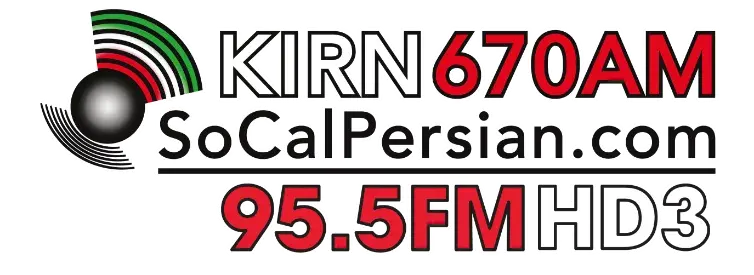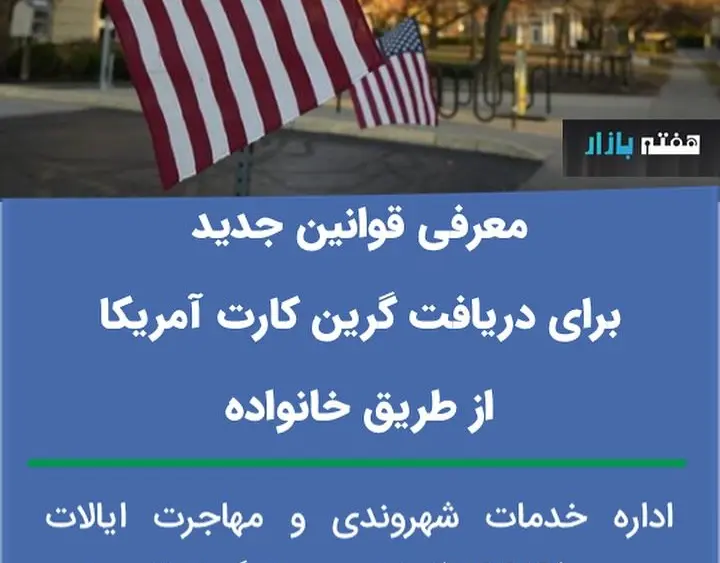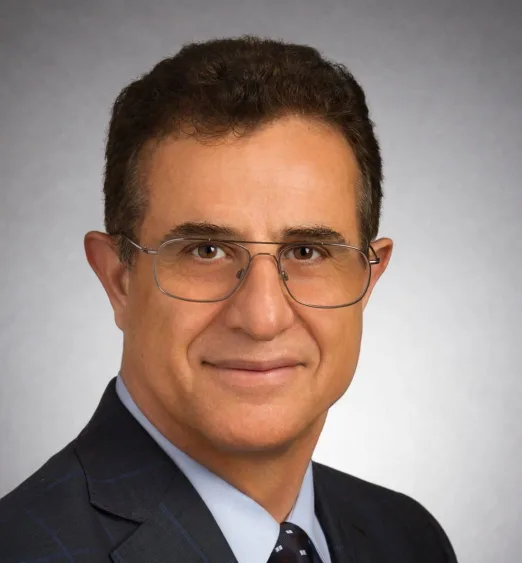OFAC FAQ: Most Frequently Asked Iran Sanctions Questions
OFAC Licensing and Impact of US withdrawal from the Iran Nuclear Deal
What is OFAC and does it still exist?
The Department of the Treasury’s Office of Foreign Assets Control (OFAC) is the U.S. government agency responsible for administering and enforcing U.S. economic sanctions programs. Yes, OFAC is still in existence and OFAC still has sanctions in place against Iran.
Why do I need to learn about and comply with the Iran Sanctions?
The Iran Sanctions significantly limit your ability to bring, receive, take, or send goods, services, technology, and money from and to Iran. It is also important to learn about the Iran Sanctions if you have a property in Iran, may at some point receive an inheritance from someone in Iran, operate a website or have an online business, plan to travel to Iran, or plan to do charitable work in Iran.
How are the Iran Sanctions structured?
The Iran Sanctions are complex and confusing; however, these rules generally prohibit a broad range of transactions, and then carve out certain, limited activities as permissible. Therefore, when trying to do anything involving Iran, it is useful to start from the assumption that what you are trying to do is not allowed. Then, look to see if there is an explicit exemption (for example, the “travel” exemption) in the law that allows you to do what you are trying to do. If there is no exemption, look to see if there is a “general license” (for example, the “personal assets” general license) that allows that activity. If there is no exemption or general license that explicitly gives you permission to undertake a proposed transaction, then you must obtain a specific license, otherwise you may be in violation of the Iran Sanctions
How does the US’ withdrawal from the Iran Nuclear Deal in May of 2018 impact the Iran Sanctions as applied to U.S. persons?
It is important to note that the lifting of the nuclear or secondary sanctions in January of 2016 as a result of the Iran Nuclear Deal mainly impacted NON-U.S. persons/entities and countries other than the United States. Even with the lifting of the sanctions in 2016, U.S. persons and U.S. companies continued to be broadly prohibited from engaging in transactions or dealings with Iran and the Government of Iran unless such activities were exempt from regulation or authorized by a general or specific license issued by OFAC. Also, broad prohibitions remained in effect regarding the direct or indirect exportation of U.S. origin goods to Iran. Therefore, the US’ withdrawal from the Iran Nuclear Deal did not, for the most part, directly impact U.S. persons. The snapping back of the nuclear sanctions will impact U.S. persons in a number of ways, including by revoking the general license that permitted the importation of Iranian-origin foodstuffs and carpets into the United States. Thus, importation of these items into the United States is prohibited.
What is the different between an OFAC general license and specific license?
A license is an OFAC authorization to undertake a transaction that is otherwise prohibited by law. There are two types of licenses; OFAC general licenses and OFAC specific licenses. A specific license is a written document, authorizing particular persons to engage in a particular transaction pursuant to a written license request. OFAC has no particular license application to be filed out, each attorney may have her or his own standard letter for a license request. If your intended transaction requires a specific license, you can engage in the transaction only after issuance of your OFAC license.
A general license authorizes particular types of transactions for a class of persons without requiring an OFAC license. You don’t need to request a general license, but be sure your desired transaction is covered by general license provisions.
What are the areas in which OFAC has issued a general license?
The following are examples of Iran related transactions covered by the OFAC General License authorizations: (1) Exportation of U.S. medicine to Iran; (2) Exportation of most medical devices to Iran, subject to exceptions; (3) Transferring gift money from Iran; (4) Transferring inheritance money from Iran; and (5) Sale of certain real or personal property in Iran that was acquired as an inheritance or before becoming a U.S. person.
What are the areas that OFAC may issue a specific license?
You will need an OFAC specific license if your intended transactions are not covered under an OFAC General License authorization nor exempted by law. The following are some common types of transactions in Iran that require an OFAC Specific License: (1) Selling property acquired or constructed after becoming a U.S. person or received through intro vivos gift; (2) Winding down a business; (3) Maintaining and Closing a bank account; (4) Purchasing property.
Can your law firm assist clients with the actual transmittal of funds from Iran to the US (i.e. Can you do what a currency exchange broker does)?
No, our firm cannot assist in the actual transmittal of funds from Iran to the United States. In order for any U.S. individual or entity to engage in money transmittal services (such as a currency exchange broker/Sarafi), that individual or entity must have the required state and federal money transmittal licenses. Furthermore, when dealing with money transmittal to/from Iran, the exchange company must also have a specific license issued by OFAC that permits that individual or entity to export services to Iran. If any entity in the United States tells you that they can send or receive money for you to/from Iran, please make sure that you ask to see a copy of their money transmittal license(s) as well as their OFAC authorization before engaging in any services
Can I open a bank account in Iran?
A U.S. Person (i.e. a citizen or legal permanent resident/green card holder) CANNOT own and maintain a bank account in Iran. Similarly, you cannot open a bank account in Iran to deposit funds related to the sale of real property. In the eyes of the US government, any new investment in Iran is illegal and owning and maintaining a bank account in Iran is an example of an investment. Therefore, you are not permitted to own and operate a bank account in Iran.
What does OFAC Voluntary Self-Disclosure (“VSD”) mean and why should I do that?
OFAC Voluntary Self-Disclosure (“VSD”) refers to a person’s voluntary reporting of his or her own apparent or potential violation of an OFAC-administered sanctions prohibition. Generally, a voluntary self-disclosure, preferably in consultation with an OFAC attorney, substantially mitigates potential OFAC penalties. The filing of a VSD may, in some circumstances, also prevent OFAC from issuing a subpoena requesting information and documents from a subject person.
Bank Account Issues
Why do some banks close or block the bank account of Iranians or Iranian Americans? Do they have the right to do even if I haven’t done anything wrong?
There could be a number of reasons why a financial institution has restricted, blocked, closed an account. Many Iranians and Iranian- Americans have been subject to these types of actions in cases where there is a perception that the account was used in some manner violating relevant regulatory prohibition (sanctions and otherwise), where the financial institution was unable to gather adequate information about the persons or purpose of the transactions, or where the customer have the right to terminate the banking relationship at any time for any reason. As such, banks have the right to choose to close a customer’s account even when a customer may feel that she or he as not engage in any wrongdoing.
What are steps I could take to reduce the likelihood that my bank account gets closed or blocked by my bank?
Transparency with your financial institution regarding your account activity, and your customer profile are both important to prevent any restrictions, blocking, off-boarding of your accounts. For example, if you are expecting a tranche of funds from overseas, when you usually do not receive those type of remittance, you may want to inform the bank of the forthcoming transaction. It is important to ensure that the proper department and team within the bank is aware of such incoming transfer. Another example, would be if you are living or travelling abroad for an extended period, you may want to inform the bank of your travel or that you may not be available to answer questions that may come in during a certain time frame.
What should one do and expect once his or her bank account gets blocked or closed?
If the account is blocked or restricted, it is often the case the financial institution is seeking additional information to make a determination as to the purpose of a certain transaction(s), whether the account holder is currently on Iran or another sanctioned jurisdiction, or whether a blocked person has an interest in the account or a transfer made to or from the account. If there is no blocked person with an interest in the account or any funds transfer, the financial institutions will typically lift the restrictions on the account, but often times follow that lifting with a decision to close the account and off-board the customer. Once account closures are determined and customers are informed of them, they can be very difficult to reserve, but not impossible, it is still worthwhile to check with the financial institution to see if they are willing to keep the account open. Although rare, there have been instance in which banks have reserved their decision to close accounts after receiving adequate information from the account holder, and assurances that neither the account holder nor the account activity will present the bank any future risk of sanctions violations or anti-money laundering concern.
Can an Iranian national (NOT a citizen or legal permanent resident/green card holder) open and maintain an account in the United States? How about Iranian students in the U.S.?
An Iranian national or someone who is ordinarily a resident of Iran may not open and maintain a bank account in the United States. What often happens is that, when an Iranian national is visiting the United States and is in the United States, banks will open accounts for that person because they are currently in the U.S. However, once that person leaves the U.S., those accounts become restricted because it is not allowed for U.S. depository institutions or banks to open and maintain bank accounts for Iranian nationals. Iranian nationals SHOULD NOT open bank accounts in the United States if they are merely visiting the U.S. temporarily.
Iranian students studying in the United States and who are in the United States pursuant to a valid visa are permitted to open and maintain accounts in the United States during the time they are residing in the United States. In the event they are returning to Iran, or their visa otherwise expires, they may be required to close those accounts
Transferring Money Between Iran and United States
How can my family send money from Iran to the US? Can they send it directly through a bank?
There are no direct banking relationships between Iran and the United States. This means that you cannot directly transfer money through banks from Iran to the United States. In practice, you must use the services of a currency exchange broker from Iran. That means your family will give rials in Iran to the currency exchange broker and the broker will in turn arrange for the sending of funds from a third country to the United States.
Can I still sell property in Iran and transfer the proceeds from that property to the United States? Do I need to obtain authorization or permission or obtain an OFAC license from the U.S. government to sell real property in Iran?
In October of 2012, OFAC issued a general license permitting all U.S. persons to sell inherited property or property that had been acquired prior to that person becoming a U.S. person. This general license remains in effect and was not changed by the lifting or reissuance of the nuclear sanctions.
Therefore, you DO NOT need to apply for a SPECIFIC LICENSE from OFAC for the sale of property acquired PRIOR to becoming a U.S. person or for the sale of INHERITED property. If you apply for a license for something that is generally licensed, OFAC will respond with a one-page “Return-Without-Action” letter. This IS NOT an OFAC license and will not be treated as such by your bank or by OFAC should any problems arise with the underlying transaction(s).
Please keep in mind that due to the fact that there is no direct banking relationships between Iran and the United States and the fact that in the majority of cases you have to receive funds only through a currency exchange broker, while you do not need a specific OFAC license, you may still be required to submit certain compliance documents to your bank prior to each incoming wire transfer. You must also ensure that the wire transfers enter the United States through third country banks and through legal channels and that the transfer does not involve any entities or individuals that have been designated as parties engaged in sanctioned activity by the United States Government.
Do you need permission from the U.S. government (OFAC) to receive a gift or inheritance
from Iran?
OFAC has also issued a general license permitting the transfer of non-commercial personal remittances (gift or inheritance) to and from Iran.
Therefore, you DO NOT need to apply for a SPECIFIC LICENSE from OFAC to transfer personal remittances from Iran to the U.S. or from U.S. to Iran. As previously mentioned, if you apply for a license for something that is generally licensed, OFAC will respond with a one-page “Return-Without-Action” letter. This IS NOT an OFAC license and will not be treated as such by your bank or by OFAC should any problems arise with the underlying transaction(s).
Please keep in mind that due to the fact that there is no direct banking relationships between Iran and the United States and the fact that in the majority of cases you have to receive funds only through a currency exchange broker, while you do not need a specific OFAC license, you may still be required to submit certain compliance documents to your bank prior to each incoming wire transfer. You must also ensure that the wire transfers enter the United States through third country banks and through legal channels and that the transfer does not involve any entities or individuals that have been designated as parties engaged in sanctioned activity by the United States Government. Please note that while a given transaction might be executed legally and with the necessary OFAC authorizations, there have been instances where financial institutions block or close any accounts related to such transaction even though it was legal.
How much money can you physically bring to the US or take with you abroad when traveling? Is the limit $10,000.00?
Any individual can physically bring in to the U.S. or take out of the U.S. any amount of money in the form of cash when traveling to or from the United States. However, per U.S. Customs and Border Protection regulations, if you are carrying more than $10,000.00 when traveling into or out of the U.S., you must report this to Customs and Border Protection.
When receiving money from Iran, is it better to receive deposits from a third country or from directly within the US?
When receiving money from Iran it is important to ensure that the transfer comes from a third country bank and does not originate from inside the United States. Although the regulations specifically do not state this, the government’s interpretation of the regulations is that, when receiving a money transmittal from Iran, the funds have to be routed through a non-U.S., non-Iranian third country bank. This means that the deposit into your account must originate from a non-U.S., non-Iranian bank in a third country (i.e., not Iran or the United States). This also means that funds cannot be sent from a U.S. bank outside of the U.S., or a U.S. bank in the U.S., and that funds cannot be provided by a U.S. person. Furthermore, U.S. persons cannot physically carry cash into the United States for or on behalf of another U.S. person.
What are the tax implications of transferring money from Iran? When will I have to pay taxes on such amount?
OFAC specific license authorization does not affect taxation of an underlying transaction. Taxation of transactions carried out pursuant to an OFAC authorization are subject to the U.S. International Tax law and you may have to pay taxes on the transaction.
Receipt of cash gift or inheritance from a non-resident alien in Iran, is not taxable in the U.S. However, for amounts in excess of $100,000 per year, you may be subject to “informational reporting” and file a return with the IRS.
Engagements and Activities in Iran
Can I open a bank account in Iran?
A U.S. Person (i.e. a citizen or legal permanent resident/green card holder, wherever located) CANNOT open and maintain a bank account in Iran, nor can they maintain an interest in a bank account in Iran. Similarly, you cannot open a bank account in Iran to deposit funds related to the sale of real property. In the eyes of the U.S. government, any new investment in Iran is illegal and owning and maintaining a bank account in Iran is an example of an investment. Therefore, you are not permitted to own and operate a bank account in Iran. For purposes of the Iranian trade embargo, prohibited new investment is defined as a commitment or contribution of funds in Iran.
Notwithstanding the above, OFAC has provided on a case-by-case basis written guidance to U.S. persons relocating to Iran permanently that they can open and maintain bank accounts at non-designated Iranian financial institutions under the general license authorization contained in 31 C.F.R. section 560.552. As this guidance is provided on a case-by-case basis, U.S. persons should seek guidance from OFAC as to the applicability of this general authorization in regard to their own circumstances.
Can I work or own a business in Iran?
A U.S. Person (i.e. a citizen or legal permanent resident/green card holder, wherever located) is not permitted to work in Iran unless that person has obtained authorization from OFAC. This means that if you are a U.S. person and you travel to Iran, you cannot own a business in Iran, unless that business interest was obtained prior to you becoming a U.S. person. Moreover, a U.S. person cannot be engaged in the operations or active management of an Iranian company or any activities that are typically associated with owning equity in a company (e.g. exercising voting rights, receiving dividends, investing capital, selling shares, etc.). Similarly, you cannot work in Iran. This is viewed as an exportation of services to Iran and is in violation of the sanctions regulations. Please be advised that this is true even if you are not living in the United States.
Notwithstanding the above, OFAC has provided on a case-by-case basis written guidance to U.S. persons that they may maintain an interest in a non-designated Iranian company if that interest was obtained prior to the individual becoming a U.S. person. As this guidance is provided on a case-by-case basis, U.S. persons should seek guidance from OFAC as to applicability of the Iranian Transactions and Sanctions Regulations (“ITRS”) un regard to their own circumstances.
Can my family gift me real property in Iran?
NO. While it is legal for a U.S. person to inherit real property in Iran, OFAC does not permit receiving gifts of real property and OFAC does not consider a gift of real property from an Iranian national who is still living an inheritance. U.S. persons must obtain specific authorization from OFAC (i.e. a specific OFAC license) before the transfer of title in order to legally accept the gift. Furthermore, if U.S. persons wish to sell the property they acquire as gifts, they must again obtain another license from OFAC, as that transaction falls outside the scope of general licenses issued by OFAC.
Can I give a guest lecture in Iran, attend a conference in Iran or otherwise engage in any type of non-business activities in Iran?
With limited exceptions for certain academic exchanges, U.S. persons are prohibited from providing guest lectures or attending conferences in Iran, absent specific license authorization from OFAC.
Are there any sanction-related restrictions on travelling to Iran (e.g. taking gifts for loved ones)?
Travel to and from Iran is exempt from the trade embargo, as is (a) the importation or exportation of accompanied baggage for persona; use, (b) maintenance within any country including payment of living expenses and acquisition of goods or services for personal use, and (c) arrangement or facilitation of such travel including nonscheduled are, sea, or land voyage.
Other restrictions, however, may apply. For example, bringing or taking gifts to Iran is authorized, but only to extent that each gift is not valued over $100, are of a type normally provided as a gift, and are not considered to be items that are considered to be “controlled” pursuant to certain restrictions of the Export Administration Regulations (“EAR”).
Humanitarian Aid and Charitable Donations Under Sanctions
Is there a legal way to donate money to Iran? If so, what types of donations can I make and what should I do to ensure such donations are in compliance with Sanctions.
Yes. Funds can be donated to non-governmental organizations or other entities that have authorization under either an OFAC specific or general license to provide humanitarian aid or engage in charitable activities in Iran. For example, General License E authorizes NGOs to export services to Iran in support of certain humanitarian activities, including the transferring of funds to Iran in support of those activities.
U.S. persons could donate to organizations whose activities fall under an authorization issued by OFAC. Again, referring to General License E, such donations include those in support of an NGPs activities with respect to the provision of donate health-related services, provision of relief related to natural disasters, and distribution of donated articles (food, medicine and clothing) intended to relieve human suffering, amongst others. Per General License E, NGOs sending funds to Iran must report these transactions to OFAC an quarterly basis and may not send more than $500,000.00 in aggregate overly a 12-month period.
Can I do any type of charitable work with Iran outside of working with an organization that has received OFAC licensing?
As a U.S person, any charitable work that you do with respect to Iran would need to be authorized by an OFAC specific or general license, or otherwise be exempt. Thus, the nature of the charitable work and the manner in which it is carried out will need to be closely analyzed to see if a general license or exemption applies, or if a specific license should be applied for. Certain general license authorizations in the regulations that may be relevant to that analysis include:
Exportation of food and agricultural commodities, most medicines, and many types of medical devices. Certain limitations apply, however, and parties acting under this section should ensure that in engaging in the activity they don’t deal or transact with prohibited parties (e.g. certain parties in the SDN List).
Transfer of personal, non-commercial remittances to or from Iran. Bear in mind, that this authorization does not allow for the provision of charitable donations to an entity in Iran.
Donations of food, medicine, and clothing to Iran that is intended to relieve human suffering.
There are also certain specific licensing policies that may allow for successful applications to engage in certain charitable work with Iran outside of an existing general license or exemption.
What should I do if I want to contribute to any disaster relief efforts in Iran?
Consult with an OFAC’s attorney for more information on compliance with U.S. sanctions targeting Iran; research and communicate with NGOs providing humanitarian relief to Iran to determine if their mission and activities are appropriate for your desire to contribute and they are operating in compliance with OFAC regulations; and consult with legal counsel if you seek to engage in those efforts outside of auspices of an organization.
Mehrnoush Yazdanyar, Esq.
Yazdanyar Law Offices
Beverly Hills, Irvine, Westlake Village, San Francisco





